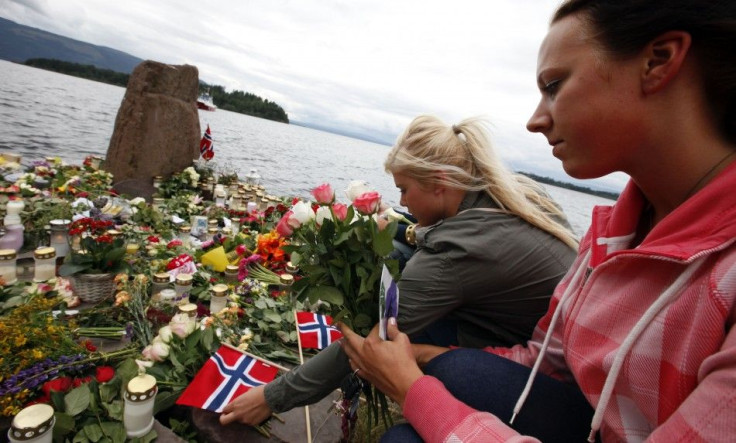Oslo Attack: Officials Say Wait Before Treating Norway Massacre Victims

More effective is to watch and wait a few weeks, allowing those who saw loved ones die, or played dead to avoid being killed themselves, to go through a natural process of recovery.
Flashbacks, fear, guilt and anger will torment the minds of survivors of the shooting and bomb attacks in Norway, but mental health experts say doctors should resist the temptation to rush in and flood them with trauma counseling. Norway and its people will recover, experts say, and they'll do so quite swiftly if a careful and targeted treatment strategy is deployed.
Monica Thompson, a clinical psychologist who co-coordinated the trauma response to the 2007 London suicide bombings, said much has been learned from previous mass killings like the September 11, 2001 attacks in the United States.
"It's quite understandable and natural for people to be traumatized, shocked and take a while to adjust, but on the whole the majority of people come out of it relatively unscathed," Thompson, from London's Camden and Islington NHS Foundation Trust, said in a telephone interview.
Lawyers, psychiatrists and police were discussing the mental health of Anders Behring Breivik after the anti-Islam radical admitted to a bombing and shooting spree that killed 76 people. More than 100,000 Norwegians attended a rally in Oslo on Monday, many carrying white and red roses in mourning.
Thompson said that while it was important for survivors and grieving relatives to feel that there are people there who can appreciate what they're going though, it's also crucial not to push them into formal counseling unless and until they need it.
"What they tried to do after 9/11 was to give everybody counseling and therapy, literally en masse. And that actually isn't helpful, because those responses of fear, shock, thinking about it all the time, having nightmares about it are all perfectly normal. It's a natural process."
Re-experiencing symptoms, or flashbacks, such as sudden images or sounds of blood being spattered or the gunman opening fire, or the look of fear in a victim's eyes, will be common in the first weeks but should gradually fade away.
Roughly 20 to 30 percent of those most closely involved in such experiences will still have symptoms a month or so later and may develop mental health problems such as post-traumatic stress disorder (PTSD) and need specialist help.
Jennifer Wild, a clinical psychologist at the Institute of Psychiatry at King's College London, said the toughest psychological issues for the survivors of the shooting spree and those closest to the bombing would be guilt, loss and fear.
"One of the most difficult emotions to deal with is survivors' guilt," she said. "And because it was so unexpected, there will also be feelings of fear, that the world is unpredictable, that anything could happen at any time. When those beliefs start to develop and become rooted in somebody, it can really affect their behavior."
For those who continue to have flashbacks, and who are still finding it difficult to sleep or seek to block memories from their minds, experts say counseling known as trauma-focused therapy can be very effective.
This involves cognitive behavior therapy (CBT) aimed at helping people to process the traumatic memories by talking about the experience, reliving it in their minds, understanding their own responses and shifting the experience into their long-term memory where it will gradually stop flashing back.
Wild, who has worked in Norway, advised health authorities there to adopt a "screen and treat" strategy similar to one deployed after the London 2007 attacks in which suicide bombers killed 52 people.
"That program was very effective," she said, with sufferers of PTSD likely to be helped to recover within a matter of months of counseling sessions once a week.
"One of the things we've learnt from major incidents and terrible tragedies like this is that thankfully, human beings are incredibly resilient," she said. "A nation can recover."
(Reuters)
© Copyright IBTimes 2024. All rights reserved.





















